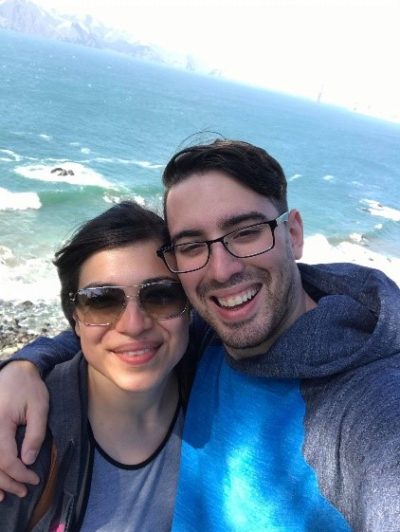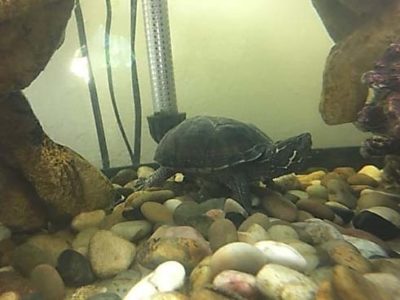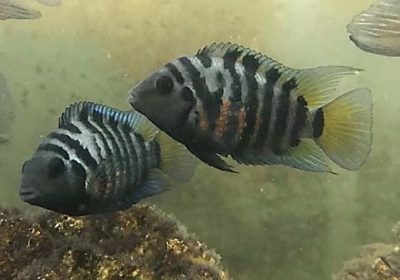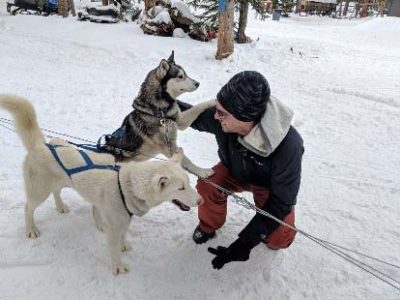This month’s Graduate Student Spotlight highlights Jimmy Goncalves. A Ph.D. Candidate in the Garcia lab, Jimmy studies how metabolism affects neurology and behavior in C. elegans. Learn more about Jimmy and his work in this month’s Spotlight below.

Jimmy Goncalves
I am currently a sixth year graduate student in Dr. Garcia’s Lab. I completed my Bachelors of Science at Pennsylvania State University. While at Penn State I worked as a Lab technician preparing chemical solutions and biological media for chemistry and biology laboratory courses. During my junior year I started undergraduate research in Dr. Wendy Hanna-Rose’s lab; worked on organogenesis in C. elegans hermaphrodites. After graduating (2013), I worked as a research technician in Dr. Wendy Hanna-Rose’s lab. The following year I joined the Texas A&M Department of Biology (2014). I started research in Dr. Garcia’s Lab January of 2015.
I am interested in studying how metabolism affects neural activity and behavior. In order to address my interests I use male mating behavior in C. elegans. I am specifically addressing the role of increased fatty acid catabolism on behavioral states and neuromuscular performance.
 Graduate Work:
Graduate Work:
What projects are you currently working on?
I use the mating behavior of C. elegans males as a model for behavioral decline. Males can mate only for 3 days out of the 14 day lifespan. Previous studies have shown that brief starvation counteracts age related behavioral decline. Also, we know that disturbing fuel usage results in an early decline in mating behavior. Despite these studies, we don’t understand how changes in fuel usage affect male mating behavior. To address the impact of increased fat usage, we used mutants of the fatty acid (FA) desaturase, which functions in unsaturated fatty acid synthesis needed to store fat. We hypothesize that the FA desaturase mutant serves as a model of increased oxidation of saturated fatty acids.
So far we have learned:
- Day 2 wild type males return to food less often and prioritize exploratory behavior which leads to increased mating.
- Wild type Males require the FA desaturase genes to maintain lipid stores.
- The FA desaturase genes maintain mating motivation and proper copulatory organ insertion on day 2 of adulthood.
- The disruptions in mating behavior, seen in mutants, are thought to be due to the buildup of a cholinergic neurotransmitter.
- What is the broader significance of your research?
Alzheimer’s, Parkinson’s, and Schizophrenia are modulated by lipid metabolism. Age-related metabolic changes can exacerbate these neurological disorders resulting in behavioral decline. Understanding how different fuels affect behavioral decline can elucidate fundamental principles underlying neurological disorders.
 Advice:
Advice:
Note: Everything written below is a reflection of my personal views. It is a reflection of me and no one else. Subjects appear in no particular order.
What is the best advice you’ve been given?
Finish what you start.
When I was a teenager I had wanted to learn to play the drums. I had not mastered the instruments my parents had already bought me (keyboard& electric guitar). My dad told me to focus and master a single thing before going on to the next. Hard to remember the exact wording but that advice has been useful. Still find it very hard to do. I have still not mastered the keyboard or guitar.
What do you think are your greatest strengths as a teaching assistant?
Perspective. I always try to put myself in my student’s shoes.
Reminder: They can sense fear.
What advice would you give to a new graduate student?
New Student: Surround yourself with people who genuinely care about you. Make your physical and mental health a priority. Also you might be surprised at what you are capable of doing when pushed to your limits. Stay Hungry.
What strategies did you use to be successful as an undergraduate student? As a graduate student?
As an undergraduate my only strategy was to study alone every single day (weekends until 6 pm). I had friends who kept life interesting on the weekend nights.
As a graduate student I think it’s best to treat every single experiment you perform as publishable. You need to have written (or mentally envisioned) the introduction, hypothesis, expected results and discussion before you perform the experiment. This strategy is a life saver, and I wish I had done this much sooner.
What characteristics do you prize most in a colleague?
I prize colleagues who are willing to help despite having no time. I also really admire when someone has a relentless passion for their work to the point of not being able to talk about anything else. The conversations are inspiring and really get me excited.
What got you so interested in Biology to make it your life’s work?
As a biochemical and molecular biology major I had made the unorthodox decision to join a developmental biology research lab (surprising my biochem professors). The research group was made up of really supportive people who believed in me before I had proven myself, and I gained insight into the subject of biology I would never have received from course work.
Who will be the most memorable person at A&M?
Dr. Wesley Thompson.
It’s difficult to put into words the vital support he gave me when I needed it the most. His kind words still resonate with me and help me combat imposter syndrome (self doubt). His teaching style invoked participation. You felt like you were on an equal playing field. I think he is the most appropriate model for how to support and foster graduate student development.
Check out some links:
Wes Thompson, In Remembrance
Personal:
 Who are your role models, and why?
Who are your role models, and why?
My Parents. Their work ethic and sacrifice has always been a guiding force. My mother immigrated to the United States when she was 17 years old in 1985, and my father as well when he was 23 years old in 1991. My mother worked night shifts (10 pm – 7 am) at a vitamin factory (Pharmacops in Elizabeth NJ; closed now). My dad worked as a construction worker during the week and as a restaurant server on weekends. My mother went on to have three kids (incredible feat) and my dad was able to get promoted from labor and to foreman.
(Suggested Readings NPR: As Pharma Jobs Leave N.J., Office Space Ghost Towns Remain)
What is on your bookshelf?
Growing up I had all the Harry Potter books. During the end of undergrad and beginning of grad school I had the Game of Thrones books. Now my book shelf is full of books relating to neurobiology and lipid metabolism. Times have changed.
What is one thing people would be surprised to know about you?
I almost failed 7th grade math. I had just moved to a Pennsylvania from New Jersey. I had a very hard time transitioning with math. I was behind by a year. By the end of high school I had taken every honors and AP math course available (for fun).
What is your favorite word?
Innuendo. The runner up would be nostalgia.
 Why did you decide to pursue your graduate studies with the Department of Biology at Texas A&M?
Why did you decide to pursue your graduate studies with the Department of Biology at Texas A&M?
My best friend who graduated with me landed a job in Houston. He had been looking into the engineering PhD program at TAMU. He had a lot of great things to say (Engineering at TAMU is highly ranked). So I took a look at the biology website and researched the professors at TAMU. Given that I had worked on C. elegans as a model organism in my undergrad university, I obviously had my interest peaked by Dr. L. Rene Garcia. I also liked the diversity (biological models/research) of the department. The choice was simple given the hospitality when visiting, diversity of research, and friends nearby.
Anything else you want to share?
Graduate students are incredible people who have chosen one of the most intellectually challenging career paths possible (aka the smartest people on the planet). I want to send out some appreciation and best wishes to everyone who is currently enduring the struggle. You are all awesome.
If you ever want to talk about your projects just shoot me an email. Also, if you want to get to know me I’m located in BSBW 347 and I’ve converted from espresso drinks to unsweetened tea from Starbucks.
